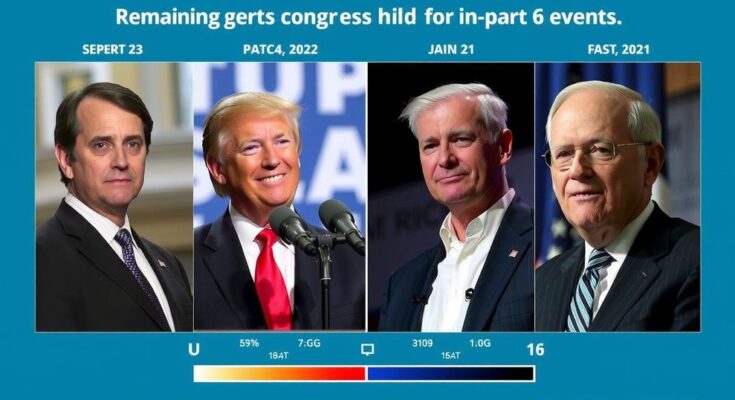Four years after the January 6 insurrection, 157 election deniers have retained their positions in Congress, indicating a troubling normalization of such beliefs within politics. Comparatively, countries like South Korea and Brazil have enacted swift accountability measures against such political behaviors, highlighting a stark contrast with the U.S. response, where key figures remain unaccountable, signaling potential risks for the integrity of democracy.
Four years after the January 6 insurrection, a staggering 157 members of the new 119th Congress are identified as election deniers. This group includes 137 representatives in the House and 20 senators who either questioned the legitimacy of the 2020 election or actively sought to reverse its outcome. Notably, over 38% of Republican senators and more than 62% of Republican representatives have perpetuated falsehoods regarding the election results. The continuity of this trend is evident, as these individuals, encompassing key figures such as Senators Ted Cruz and Rick Scott, remain unscathed politically despite their controversial positions.
Despite a slight reduction from the 172 election deniers in the previous Congress, the mere existence of this faction reflects the diminishing political consequences of embracing such a label. In the broader political landscape, approximately 10 of 27 Republican governors, along with numerous state attorneys general and secretaries of state, have also echoed denialist sentiments, suggesting a widespread acceptance of these views within the party.
Comparatively, other democracies, such as South Korea and Brazil, have exhibited a sharper response to threats against democratic integrity. Recent events in these nations have illustrated a readiness to impose accountability on political figures following attempts to subvert the democratic process. In South Korea, decisive action was taken against President Yoon Suk Yeol following his undemocratic maneuvers, leading to his impeachment. Similarly, Brazil’s government responded robustly to the January 8 attacks on its Capitol, resulting in significant legal repercussions for former President Jair Bolsonaro and his affiliates.
In contrast, responses within the United States have been notably less vigorous. Efforts to hold accountable those responsible for the insurrection have faced significant obstacles, including the slow pace of investigations by the Justice Department led by Attorney General Merrick Garland. Rather than investigating top officials who precipitated the events of January 6, there has been a focus on individual rioters. This cautious approach has yielded limited results, with many individuals involved directly in the riot facing conviction while key political figures remain exonerated or unchallenged. Ultimately, this reflects a lack of urgency and a normalization of behaviors that once were viewed as intolerable threats to democracy.
This environment has allowed the presence of 157 election deniers in Congress to persist, suggesting that the ramifications of political misconduct have diminished significantly and may inadvertently assimilate into the fabric of American political culture.
The phenomenon of election denial emerged prominently during and after the 2020 presidential election, when then-President Donald Trump and his supporters claimed widespread electoral fraud without evidence. The January 6, 2021, insurrection at the U.S. Capitol was one of its most extreme expressions, as thousands attempted to overturn the election results. In the years following, various politicians who supported these claims have maintained their positions and influence within Congress, reflecting broader cultural and political shifts within the Republican Party. This issue raises significant concerns about electoral integrity, accountability, and the health of American democracy. Comparatively, other countries have shown a more proactive approach to uphold democratic principles, taking swift action against politicians who challenge electoral legitimacy. The responses in Brazil and South Korea showcase the potential for democratic resilience through accountability mechanisms. These contrasting responses highlight ongoing challenges in the U.S. regarding how political norms are upheld or eroded over time.
In summary, four years post-insurrection, Congress remains home to 157 election deniers, illustrating a disturbing normalization of such rhetoric within American politics. The leniency faced by these officials contrasts sharply with rigorous accountability measures seen in other democracies grappling with similar challenges. The measured and prolonged approach of the U.S. legal and political systems underscores a troubling climate that allows for the perpetuation of falsehoods regarding electoral processes, signaling a critical juncture for American democracy moving forward.
Original Source: zeteo.com




